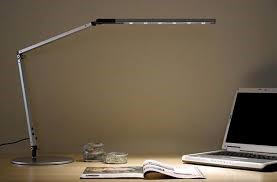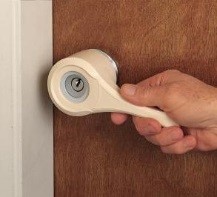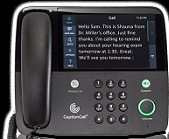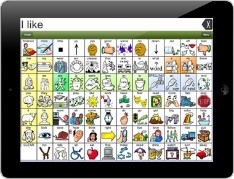Definition taken from the Assistive Technology Act of 2004:
“Any item, piece of equipment, or product system, whether acquired commercially off the shelf, modified, or customized, that is used to increase, maintain, or improve functional capabilities of individuals with disabilities”.
Our definition of Assistive Technology:
A term for creative tools and strategies that help people accomplish tasks at home, school, work, and in the community!
Check out this video to learn more about assistive technology!
The Assistive Technology Spectrum
AT can be high-tech like a computer or a tablet but is often low-tech like Velcro!
No Tech Solutions
No Tech Solutions usually involve changing the environment, policies, or procedures to remove barriers without adding additional devices or equipment. Examples can include:

- Using lamps instead of overhead lighting
- Offering flexible or alternative work schedules
- Changing seating arrangements to allow someone a quiet space to work or take a test
- Using three ring binders instead of binder clips to hold papers together
Low-Tech Solutions
These are simple, usually don’t require training, and are often the least expensive option. Some examples include:

- Magnifying glasses
- Weighted Bookmarks
- Adapted Door knobs
- Assorted Utensil Grips
Mid-Tech Solutions
Mid Tech solutions are a bit more complex and could include:

- Amplified and Captioned Telephones
- Switch Adapted Board Games
- Smart Pens
- Reminder Alarm Clocks
High-Tech Solutions
High tech solutions are typically more complex, require training, and are more expensive:

- iPads with apps for time and task management
- Speech to Text Dictation Software
- Dedicated Speech Generating Devices
- Voice Activated Home Environment Control
